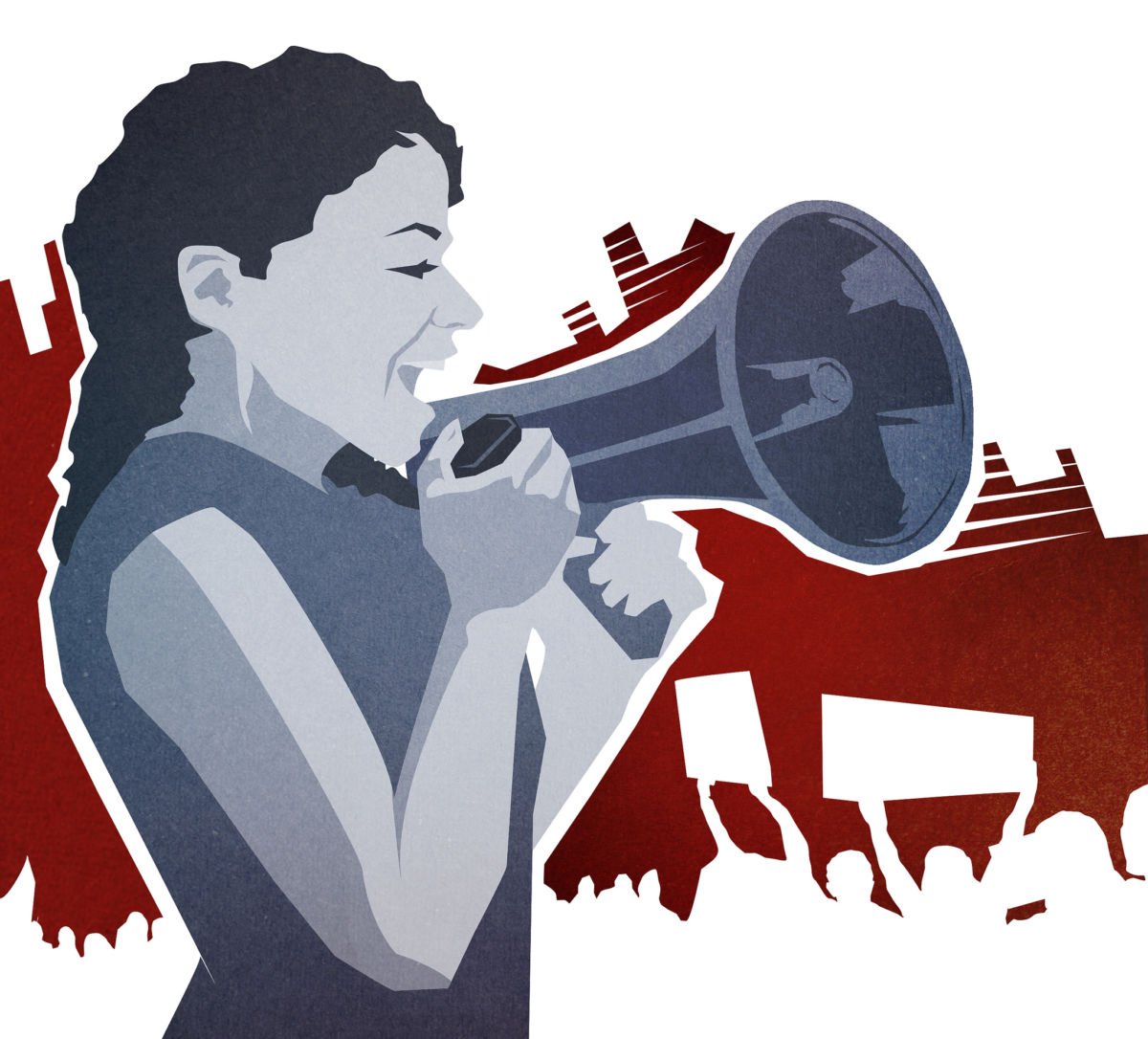As people around the country are celebrating Thanksgiving, and the manic day of discount shopping that follows, one network of activists has already been celebrating a different kind of Black Friday for the past two months. This initiative, connected by the Twitter hashtag #BlackFridays, has resulted in a number of symbolic walkouts across the country led by a network of women of color.
Spurred into action by the Kavanaugh hearings, #BlackFridays began when a group of “womxn” – acknowledging the historic exclusion of gender expressions – signed a public letter urging people to wear black and disrupt “business as usual.” Their aim was to express rage and resistance against the “places that gave us the Kavanaughs, the Trumps and the CEOs who harm us.”
In practice, this meant groups across the country took weekly actions each Friday, starting on October 5, in which they would “walk out” in a variety of ways. Whether walking out of school or work, or walking out to the polls to vote, these actions were tied together by a weekly theme across the country.
On November 2, people “walked out” to a woman-owned local business. In the week before the election, people “walked out” to prepare for Election Day by voting early, making a video to share on social networks, and bringing information to other community members to make sure they were prepared to vote.
The last week of #BlackFridays actions are geared toward supporting the #WeKeepUsSafe campaign with Million Hoodies for Justice. All of these actions have emphasized the importance of listening to impacted communities, people of color and local organizers — not only to raise the visibility of certain issues, but to create connection and community between the people taking part in the actions.
Long-term organizer and author L.A. Kauffman, a signatory to the #BlackFridays launch letter, described these actions as a “hybrid” between a strike and a more traditional get-out-the-vote effort. This has led to a unique emphasis on both noncompliance with existing systems of oppression and electoral mobilization geared toward changing the system from within.
According to organizer Angela Peoples, the concept for #BlackFridays emerged from the collective trauma and rage many women of color felt as the Kavanaugh confirmation process unfolded.
“For many of us, Christine Blasey Ford’s testimony felt like a trip down memory lane,” said Peoples, who helped establish the group No Justice, No Pride and is involved in efforts to decriminalize sex work in Washington, D.C. “For women of color, this violence has been systematic against our communities and our bodies since this country’s inception.”
Rather than sit with their collective rage, Peoples and other activists in her network decided to let it “grow into whatever is needed by survivors.”
This emphasizes perhaps the most important aspect of the #BlackFridays actions: They have helped a vast network of women — particularly women of color, trans women and immigrants who have experienced state-sanctioned violence — forge stronger bonds and connections.
“We had folks from all cross-sections of our community and our country taking action, walking out of their jobs and homes, and walking into connection with each other,” Peoples said.
After the #BlackFridays actions end this week, organizers will be encouraging people to connect with local movements in their communities, lift up local activists and take direction from people of color leading those initiatives.
What’s more, Peoples hopes the #BlackFridays walkouts send a broader message to those who identify as being part of “the resistance.” It is important, she said, for people with privilege to increase the sacrifices they are willing to make. “If your actions feel comfortable, you’re not doing it right.”
We’re not backing down in the face of Trump’s threats.
As Donald Trump is inaugurated a second time, independent media organizations are faced with urgent mandates: Tell the truth more loudly than ever before. Do that work even as our standard modes of distribution (such as social media platforms) are being manipulated and curtailed by forces of fascist repression and ruthless capitalism. Do that work even as journalism and journalists face targeted attacks, including from the government itself. And do that work in community, never forgetting that we’re not shouting into a faceless void – we’re reaching out to real people amid a life-threatening political climate.
Our task is formidable, and it requires us to ground ourselves in our principles, remind ourselves of our utility, dig in and commit.
As a dizzying number of corporate news organizations – either through need or greed – rush to implement new ways to further monetize their content, and others acquiesce to Trump’s wishes, now is a time for movement media-makers to double down on community-first models.
At Truthout, we are reaffirming our commitments on this front: We won’t run ads or have a paywall because we believe that everyone should have access to information, and that access should exist without barriers and free of distractions from craven corporate interests. We recognize the implications for democracy when information-seekers click a link only to find the article trapped behind a paywall or buried on a page with dozens of invasive ads. The laws of capitalism dictate an unending increase in monetization, and much of the media simply follows those laws. Truthout and many of our peers are dedicating ourselves to following other paths – a commitment which feels vital in a moment when corporations are evermore overtly embedded in government.
Over 80 percent of Truthout‘s funding comes from small individual donations from our community of readers, and the remaining 20 percent comes from a handful of social justice-oriented foundations. Over a third of our total budget is supported by recurring monthly donors, many of whom give because they want to help us keep Truthout barrier-free for everyone.
You can help by giving today. Whether you can make a small monthly donation or a larger gift, Truthout only works with your support.
